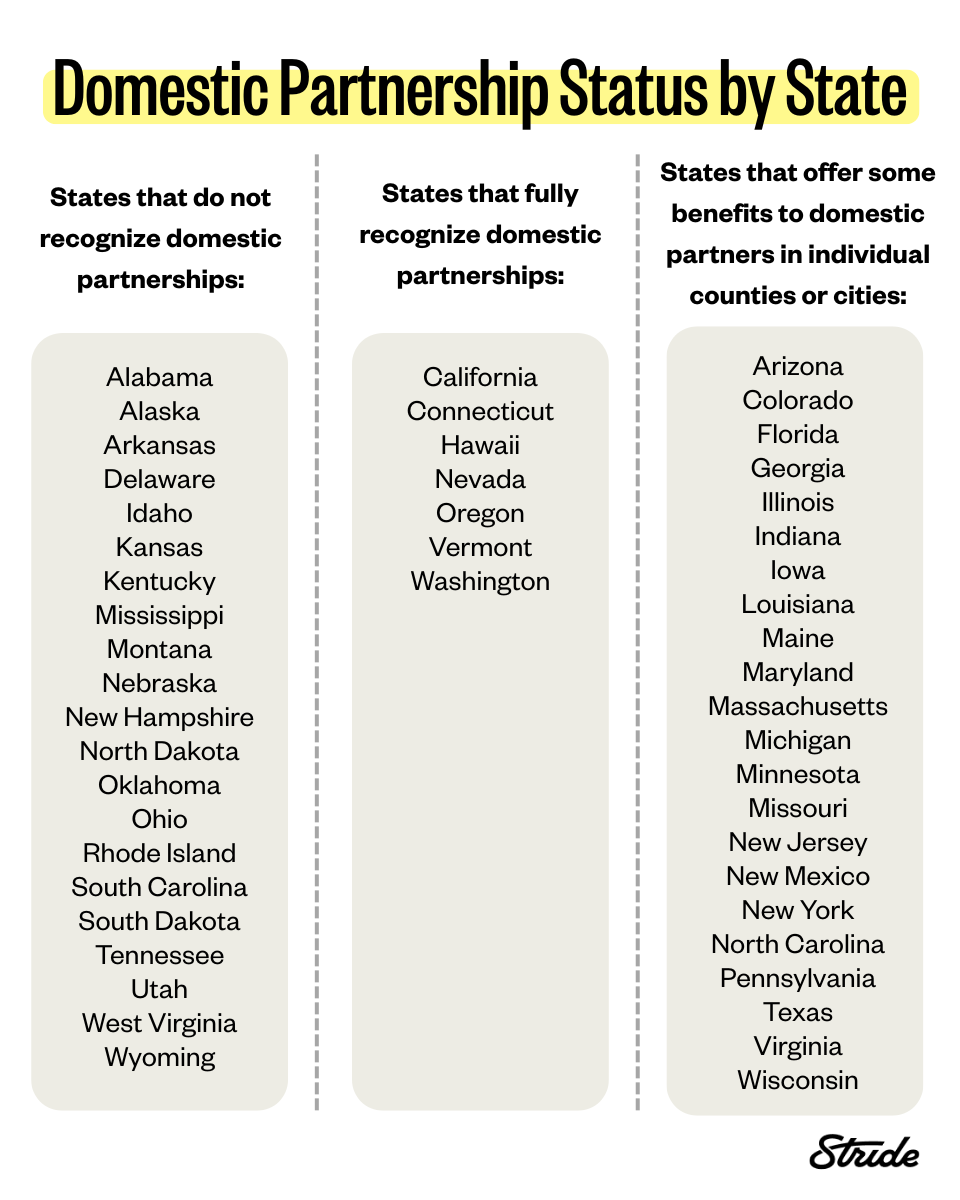The Ultimate Guide to Domestic Partnerships and Health Insurance
With fewer Americans getting married, you might be curious about the rights you and your partner have outside of this traditional institution. Depending on certain details, you may be eligible to sign up for health insurance together in a domestic partnership. Here’s what you need to know.
What is a domestic partnership?
A domestic partnership is when two people of any sex live together in a committed relationship and often share financial responsibilities as if they are spouses, but are not legally married. Depending on state law, domestic partners have access to certain benefits, such as eligibility for employer-sponsored health plans.
If you’re looking for health insurance for you and your partner, enter your ZIP code below to get customized plan recommendations in minutes.
Where are domestic partnerships legally recognized?
Domestic partnerships are not recognized at the federal level. This means your state will have its own guidelines regarding what a domestic partnership is and what legal rights it affords you.
Here’s a list of domestic partnership status by state, according to LegalMatch.
Who qualifies as a domestic partner?
Qualifications for domestic partnership vary by city. Some cities may require you to be local residents, of a certain age, or have local employment. You can do an internet search for your state’s domestic partnership qualifications or find out who in your local government issues marriage licenses, and ask them how they recognize domestic partnerships.
What does domestic partnership mean for health insurance?
Health insurance coverage for domestic partnerships varies by insurance company and location. When shopping on the health insurance marketplace, you can list your partner as a household member if you’re not married as long as you share a child together. You can also claim your partner as a tax dependent.
You can call health insurance companies directly and ask if they recognize domestic partnerships. If they do, you’ll be able to include any of your biological, step-, or legally adopted children on your plan, as well.
Inside tip → If you’re unable to find family coverage, you can enroll in individual plans. This can actually be a more affordable option if one of you is eligible for subsidized prices.
If you live in an area that recognizes domestic partnerships, your (or your partner’s) employer may include domestic partners on their group health plans. Keep in mind that if your employer helps pay for your partner’s coverage — and if your partner is not an IRS-qualifying dependent — you will need to report those contributions as taxable income on your W-2.
And should you lose your employer-based coverage, know COBRA coverage is notalways extended to domestic partners.
What documentation do I need to prove my domestic partnership?
If your employer or health insurance company is requesting proof of your domestic partnership, these types of documentation will help you make your case:
State or municipal domestic partnership registration
A signed affidavit stating that both you and your partner:
Are 18 or older
Are not blood relatives, married to someone else, or in a relationship with other people
Live together (in some cases for at least six months)
Share the same permanent and regular residence
Share responsibility for living expenses
Joint deed showing shared ownership of a car
Mortgage agreement
Driver’s licenses listing the same address
Proof of joint bank and credit card accounts
Designation of your partner as a primary life insurance plan beneficiary
Have questions? Reach out to our support team for more personalized help. Think you and your partner are eligible to share a health plan? Enter your ZIP code below to start comparing plans.

